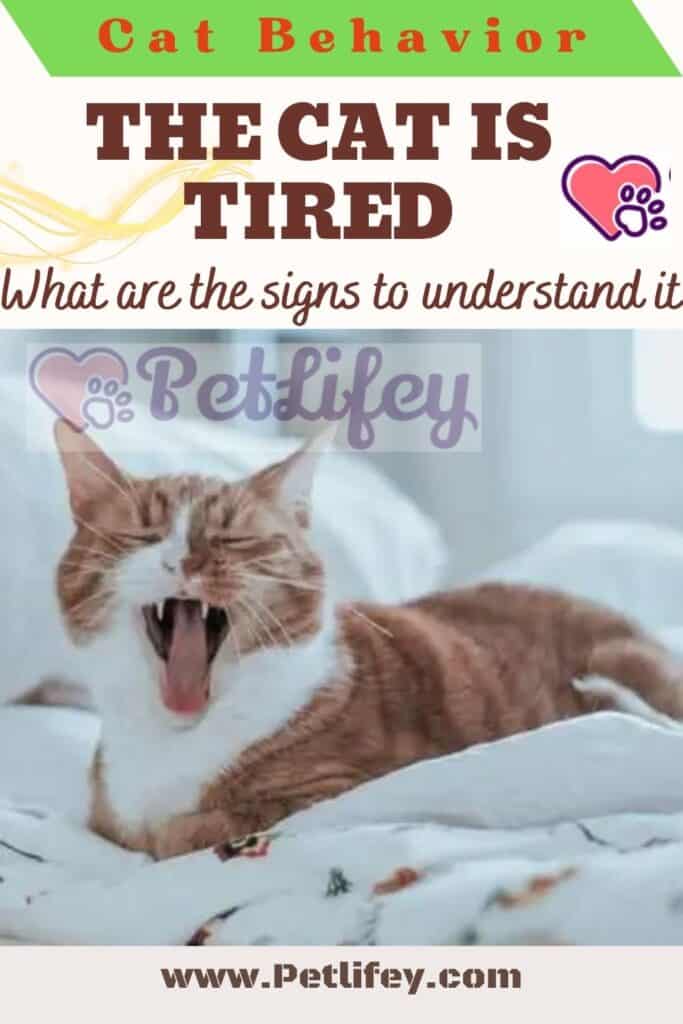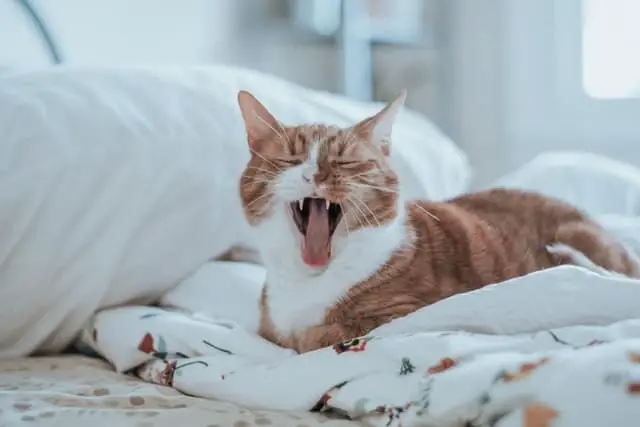
Does your cat seem tired to you and don’t want to do anything? Here are the signs to be grasped and how to run for cover.
Sometimes a cat doesn’t feel like cuddling or playing as usual. If he has less energy and seems apathetic, it is important to note what other signs are to be considered before worrying. In fact, tiredness alone is not always a symptom of a serious problem: sometimes it can only be a trivial episode. That’s when it’s a symptom of something wrong and what to do to help.
The cat is tired: all the symptoms
It may happen that the cat sleeps more than usual, is less energetic and has less desire to be with us. Strange for an animal so always looking for attention! The signs to watch out for can sometimes be imperceptible, but not for an attentive and sensitive owner.
Apathy
One of the symptoms, in addition to lethargy and therefore a considerable increase in the daily ‘nap’ time, is the loss of interest in routine activities (remember that the cat is an extremely habitual animal). So if we notice that he is not busy playing with the usual ball or is not trying to catch flies with his paws, there could be a problem.
Anorexia
Substantial weight loss is another problem that certainly cannot go unnoticed. It is linked to a decrease in appetite: if we notice that our cat has not eaten for several days and above all is not stimulated to eat even by the foods that he is crazy about, it could hide a worrying malaise. We always talk to our veterinarian and arrange a visit to rule out any health problems.
Breathing
If the cat is not breathing well, panting and wheezing is another sign of fatigue. It can happen that the cold in the cat presents the same symptoms, but here in particular it should be noted if he breathes with his mouth open, accompanying the breath to a sort of rattle or in any case a different sound than usual.
Diarrhea and fever
Bowel problems or diarrhea can also debilitate the cat. It leads to feline dehydration and makes her immune system more fragile and prone to infections. It is no coincidence that episodes of diarrhea are accompanied by fever. Care should be taken to hydrate it well, even if this factor is related to the next problem.
Thirst and urination
It may happen that the tired cat asks to drink continuously and the water in the bowl is never enough. This considerable increase in the desire to drink is linked to the problem of polyuria, i.e. an excessive or abnormal production of urine.
The cat is tired: possible causes
It is difficult to establish a single cause for cat fatigue. It could be linked to an event that stressed him in a particular way such as the arrival in the family of another human or animal member. Therefore, psychological factors such as stress and depression can often induce fatigue in cats. On the other hand, the same thing happens to us when we are down in the dumps and don’t want to do anything except sleep.
It is not always easy to identify the cause of feline depression, but it could certainly be related to the change in his family routine: a new arrival, or conversely, the loss of a loved one. Among the external factors that can cause the state of lethargy and apathy there are also viral, bacterial infections or infections due to the attack of parasites in cats and protozoa: but we will see them later.
Intestinal disorders such as constipation can also create a general state of exhaustion and lethargy in the cat. Or a food problem may be at the basis of its inactivity: if perhaps the cat has skipped (due to our forgetfulness or lightness) his meal or has eaten poor quality foods, he may feel tired and heavy.
Even a heat stroke in cats can cause fatigue: on the other hand, being exposed to the sun for a long time, without adequate hydration and without the possibility of shade, can put a lot of stress on our cat. A high level of calcium in the blood (Hypercalcemia) can also cause fatigue, as well as its opposite (Hypocalcemia).
A poisoning or in any case the ingestion of toxic substances can have feline fatigue among the effects. What are the poisonous substances that can trigger this perennial state of lethargy and apathy? Zinc, ibuprofen, antifreeze substances, paracetamol among the main ones.
Diseases that induce fatigue in cats
Finally, the diseases that can be among the main causes of feline fatigue deserve a separate paragraph. They compromise not only the vitality but the general health of our beloved cat. Among the first to consider is Feline Herpesvirus, a common viral infection also known as ‘feline flu’.
This is followed by infections of Escherichia Coli, or those related to bacteria that live in the gastrointestinal tract, which from there leave to reach the urinary tract and other parts of the body. Infectious feline anemia causes fatigue and is in turn due to the destruction of red blood cells that supply oxygen to the organs; Feline Infectious Peritonitis or FIP, which is also very dangerous, sometimes fatal. Other causes include viral infection, similar to human HIV, namely Feline Immunodeficiency Virus and Feline Leukemia Virus, which causes immunosuppression and cancer.
Among the parasites responsible for heart and lung infections is Dirofilaria, an infection with roundworms. Finally, followed by Pyometra, infection of the uterus, Osteomyelitis or bone inflammation and Tularemia, due to the attack of ticks. Finally, among the main reasons we cannot exclude some coronary and heart problems, as well as cancer.
The cat is tired: diagnosis and treatment

Of course, the first person to contact for help is our trusted veterinarian. The expert will probably proceed with a complete examination of the feline and will need all the most important elements to reconstruct its medical history, including the diseases in progress.
Among the tests that the cat could undergo are: urine and blood analysis. these will be used to assess the state of health and functionality of the internal organs and to exclude infections. Equally useful can be an ultrasound to rule out tumors or obstructions, along with heart and chest x-rays to highlight a possible heart problem, pleural effusion, or cancer. Finally, an examination of the cat’s feces can rule out the presence or absence of aggressive parasites within the feline’s organism.
The most suitable treatment depends on the problem detected, but often the expert can choose to recommend the administration of fluids intravenously: this will help hydrate the tired cat and replenish electrolytes. He will also be able to recommend a specific diet, perhaps through a feeding tube if the cat refuses to eat.
To these ‘precautions’, the veterinarian could associate a drug therapy based on antibiotics, for the treatment of bacterial and antiviral infections and supportive therapy for viral infections; finally anti-parasitic drugs.






